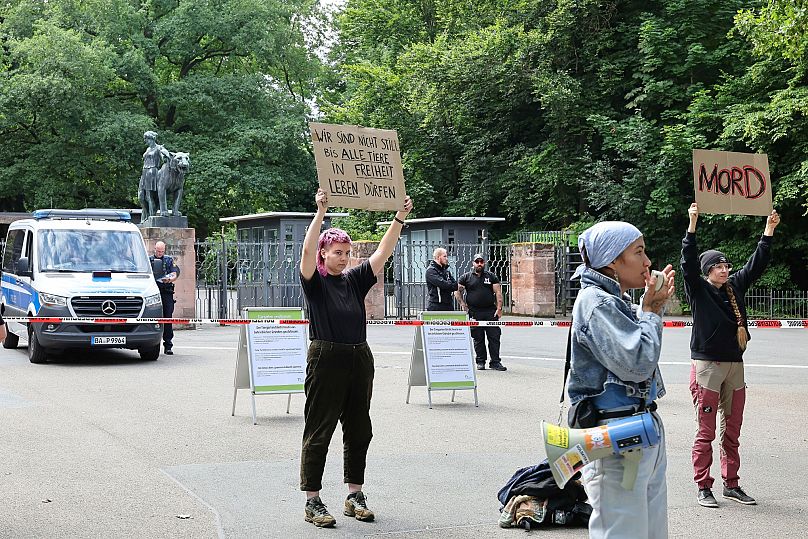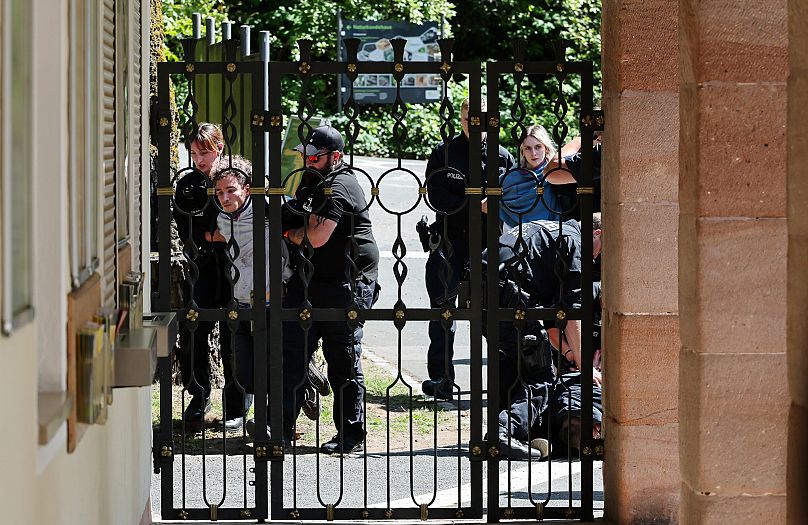The zoo's population of Guinea baboons had grown to 43 and was too big for a house opened in 2009 for 25 animals plus their young, leading to more conflicts among the animals.
A zoo in the German city of Nürnberg said it killed 12 baboons on Tuesday despite protests, capping a saga rooted in concerns that the zoo had too little space to house a growing group of the animals.
The Tiergarten Nürnberg zoo first announced plans to kill baboons it didn't have enough space in February 2024.
It has said that it examined offers to take in some of the animals but was unable to make any of them work.
The plans drew criticism from animal protection groups. They also drew protests at the zoo, which said on Monday that it would have to start preparing to kill baboons.
On Tuesday morning, it announced that it was closing for the day for unspecified "operational reasons."
On Tuesday afternoon, police said seven activists climbed over a wall into the zoo and one woman glued her hands to the ground. The group was detained a few metres inside the entrance.
Shortly afterward, the zoo said it had killed 12 baboons. The deputy director, Jörg Beckmann, said the zoo had chosen animals that weren't pregnant females or part of studies and that they were shot.
Samples were taken for research purposes and the bodies were then to be fed to the zoo's predators.
Zoo director Dag Encke told a news conference that the killings followed "yearslong consideration."
He argued that they had become necessary to maintain a healthy population because having a group that had outgrown its accommodation and couldn't be reduced by other means was pushing the zoo into conflict with animal protection laws.
Animal rights groups said they filed a criminal complaint against the zoo's management, arguing that the killings themselves violated animal protection laws and that the zoo had failed in its breeding management.
Laura Zodrow, a spokesperson for the Pro Wildlife group, said in a statement that "this killing was avoidable and, from our point of view, is unlawful."
The zoo's population of Guinea baboons had grown to 43 and was too big for a house opened in 2009 for 25 animals plus their young, leading to more conflicts among the animals.
The zoo has said it did take steps in the past to address the issue, with 16 baboons moving to zoos in Paris and China since 2011.
But those zoos, and another in Spain to which baboons were previously sent, had reached their own capacity. An attempt at contraception was abandoned several years ago after failing to produce the desired results.
Animals are regularly euthanised in European zoos for a variety of reasons.
Some past cases have caused an outcry. For example, one in 2014 in which Copenhagen Zoo killed a healthy two-year-old giraffe, butchered its carcass in front of a crowd that included children and then fed it to lions.













